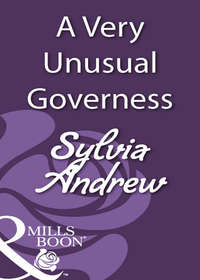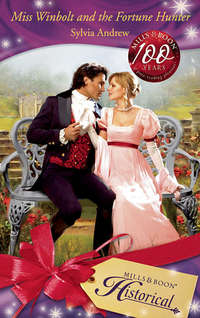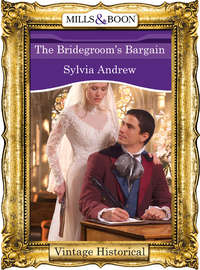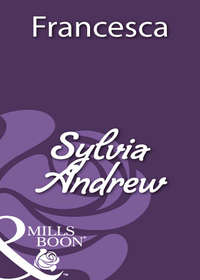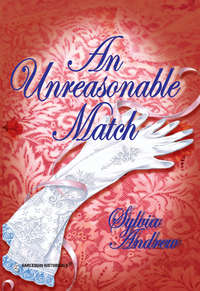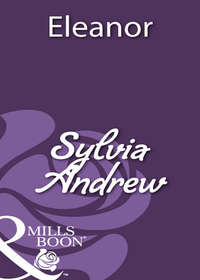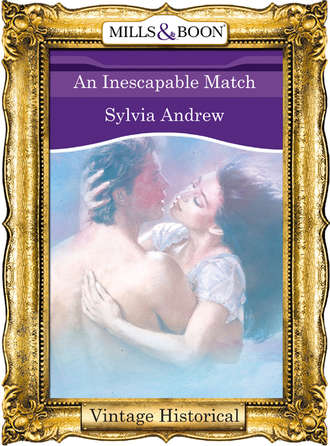
Полная версия
An Inescapable Match
‘Where do you want me to begin?’
‘With Mrs Dearborne’s hat, of course! My guess is that Autolycus had a hand in it. Or do I mean a paw?’
‘You’re right, as usual. Autolycus cannot resist a nice straw hat.’
‘So I see,’ he said, eyeing the tattered straw on her own head. ‘And did Mrs Dearborne make you pay for another?’
‘I had to offer—and she accepted! It was new, of course. One of those big ones with lots of ribbon and…and feathers. It was very expensive, Hugo.’ She started to chuckle. ‘It was almost worth it just to see Autolycus running off with feathers streaming out of his mouth and Mrs Dearborne in full pursuit. She is…is quite a portly lady, and was soon out of breath. But when I caught him in the end, the hat was ruined. I must say that I think Mrs Dearborne was very severe. After all, I had taken the parrot off her hands! And—’
‘One moment. Why did you take the parrot?’
‘Well, someone had to! Mrs Dearborne didn’t want it any more and no one else would have it.’
‘And how did Mrs Dearborne, whom I am growing to dislike, come to have a parrot with such an exotic vocabulary?’
‘Her lodger, who had been a sailor, passed it on to her before he left. She thought it would be company. But then she discovered its…its…er…social disadvantages. The ladies of Maids Moreton were quite shocked by some of the things it said.’
‘I can well imagine it. Carry on.’
‘Well, even though I had helped her out with the parrot, Mrs Dearborne was very angry with Autolycus… So I paid. And that meant I didn’t have quite enough for the journey.’
‘Where was your aunt while this excitement was going on? Your father’s sister, I mean. I thought she was looking after you?’
Deborah paused for a moment. Then she said awkwardly, ‘She left. She went back to Ireland the day before yesterday.’
‘What? Leaving you to look after yourself?’ Hugo was shocked. ‘I can’t believe it!’
‘She went very suddenly. Of course, she had arranged to go back to Ireland soon, anyway. She always knew that I would eventually make my home with Aunt Elizabeth after Mama died. But why she left Maids Moreton with so little warning, I don’t know. It was very awkward. After she’d gone there was hardly any money, and I wasn’t sure if Aunt Elizabeth would be back from London after Robina’s come-out.’ Then with a lightning change of mood which was typical she said, ‘Oh, Hugo, I quite forgot to ask! Do tell me! How did Robina do? Was her début a success?’
‘You could say so. From what I observed, Cousin Robina is going to make a very good match. She’s in Brighton with the Dowager Lady Exmouth at the moment.’
‘You mean she might marry Lord Exmouth?… How wonderful! But she deserves it! She’s so pretty, and good. And I’m sure she would behave beautifully…’ For a moment Deborah looked wistful. Then she laughed and said, ‘Aunt Elizabeth will be delighted—her eldest daughter so suitably engaged! Perhaps she will let me keep Autolycus at the Vicarage, after all?’
Hugo smiled. ‘Perhaps. But I wouldn’t bet a groat on her toleration of the parrot.’ He watched Deborah’s face with amusement as her look of dismay was replaced with an expression of hopeful pleading. ‘All right! I might be able to help you. In fact I’ve thought of someone who might, just might, enjoy the parrot’s company.’
‘That would be such a relief! It’s not that I don’t like it, exactly. But I quite realise that it is not a suitable inhabitant of a Vicarage. I wouldn’t have brought it, except that I didn’t know what else to do with it. Do you really know someone, Hugo?’
‘I think so—but I won’t say any more at the moment in case it doesn’t work. Leave it with me, Deborah. I promise to find a home for it somewhere.’
‘Oh, Hugo! Thank you!’
Hugo had forgotten how Deborah Staunton’s face could light up in a way he hadn’t seen in anyone else. She was not conventionally beautiful, and certainly did not possess the sort of looks he particularly admired. His preference was for pretty blondes, with regular features, and gentle manners. Even when Deborah was looking her best—which was not the case at the moment—the combination of a mane of black hair, pale cheeks and eyes of such a dark indigo that they looked black was too dramatic for his more conventional taste. Among her cousins she was like a young falcon set down in a dovecote, with much the same unexpected consequences. Judging from his experience in the past, life with Deborah would always consist of a succession of crises, a far cry from his own calm, well-judged existence. But all the same, without feeling himself in the slightest danger, he found the manner in which her face could light up with joy very appealing.
They had been sitting with their backs to the house, taking advantage of the splendid view, but turned when they heard voices behind them.
‘Deborah! What a surprise! Where did you find her, Hugo?’
The visitors to Stoke Park had returned. Lady Perceval was hurrying over the lawn to greet her unexpected guest, closely followed by Lady Elizabeth and the rest of the family. There followed a series of huggings and kissings and exclamations as Deborah was passed from one to the other. The Perceval girls in particular greeted their cousin with the greatest possible affection. Deborah held a special place in their hearts, and though she was by no means the youngest of them they had all always regarded her as someone in need of special care and protection. It was some time since they had seen her and they exclaimed at the change in her appearance.
‘Girls, girls, be quiet!’ said Lady Elizabeth. ‘I am sure you mean well, but I think you forget your manners! Deborah has had a trying time these past years, but it cannot be pleasant for her to hear your tactless comments.’
‘But she’s so pale and thin, Mama!’ cried Henrietta, the youngest and liveliest of the Vicar’s four daughters.
‘That is quite enough, Henrietta!’ Lady Elizabeth took Deborah’s hands in hers. ‘My dear, as you can see, we are all delighted that you’ve come at last. But surely you were not due for another two days? I would never have accepted the Vernons’ invitation if I had known you were coming today. You must have thought us very remiss. How did you come? And what have you done with all your possessions?’
‘I…I’m sorry, Aunt. I…I…’
Hugo came to Deborah’s aid. ‘Deborah has been well taken care of, I assure you, Aunt Elizabeth. And Nanny Humble is looking after the rest of their goods and chattels. They should all be here at any moment.’
As if on cue, a servant came out to tell Lady Perceval that the carriage with Mrs Humble and a number of goods had arrived in the courtyard. Deborah excused herself and hurried off ahead of the others. She wished to make sure that Nanny Humble did not reveal the facts behind her unconventional arrival in Abbot Quincey before she had had time to prepare her aunt for it. Hugo had divined her purpose and she was grateful to see that he was delaying her aunt and Lady Perceval with questions about the Vernons.
Chapter Two
Nanny Humble was not in the most cooperative of moods. She was too old, she said, to be traipsing about the countryside in a dogcart, then left to while her time away in an ill-kept inn with a landlord who couldn’t wait to get rid of her, while Miss Deborah went off into the blue with that dratted dog and that heathen-tongued bird, leaving her to wonder whether she’d ever see her young mistress again… If Miss Deborah knew how much… Deborah recognised the anxiety behind the angry words, and dealt gently with her old servant. She managed to cut the tirade short without causing further offence, begging Nanny Humble to leave complaints and explanations till later.
‘I’m sorry our journey was so uncomfortable, Nanny dear. But we’re nearly at the Vicarage now, and we’ll soon be in our old rooms.’
‘Her ladyship is very kind, Miss Deborah. But it’s different now. I’m sure I don’t know what’s to become of us…’ Nanny Humble’s voice wavered and Deborah put her arms round her.
‘We’ll be safe here in Abbot Quincey. Try not to worry. Look, here comes Lady Elizabeth. Remember, not a word to her of our recent difficulties—you must leave it to me to tell her about them later. Not now.’
Lady Elizabeth greeted Deborah’s old servant and asked how she was. Then, turning to her sister-in-law, she suggested that Mrs Humble should wait in the servants’ quarters while they finished their talk with Deborah. Lady Perceval readily agreed.
‘I think a drink of something cool would be welcome on such a hot day, would it not, Mrs Humble? My housekeeper will take care of you until Miss Deborah is ready to go to the Vicarage. Shall we say an hour? Come, Deborah! I cannot wait to hear your adventures.’
More chairs and cushions were brought out and the two families settled once again in the shade of the cedar. Frederica and Edwina each took one of Deborah’s hands and towed her gently to one of the benches. Here they sat her down between them, expressing in their soft voices their delight at seeing her, and showing their loving concern for her. She felt herself relax. Here at Abbot Quincey she felt…cherished. She looked at them all. The Percevals were a tall, blond race with a remarkable family resemblance. Sir James and his wife, the owners of Perceval Hall, were on a garden seat opposite her, enjoying the cool shade of the cedar. Hugo, their elder son, stood behind them, leaning against the trunk of the tree. Hester, their only daughter, so like Hugo in appearance, was perched on the arm of her parents’ seat. It was quite normal for Hester to seem quiet and withdrawn in company, but today she looked pale and preoccupied, and kept casting anxious glances in the direction of the drive. Deborah wondered what was wrong. She made a note to ask Hugo later. On another bench to the right sat Sir James’s brother, the Reverend William Perceval and his wife, the Lady Elizabeth, Deborah’s aunt. Aunt Elizabeth, the elder daughter of the Duke of Inglesham, was always the same—narrow, aristocratic face, upright posture, dressed plainly but with exquisite neatness. Today her normally somewhat severe expression was softened. Though she was a strict parent, with impossibly high standards of behaviour, Lady Elizabeth had a loving, caring heart. She had invited Deborah to make her home at the Vicarage some time ago, and was now obviously happy to see her niece in Abbot Quincey at last. Deborah smiled. For the first time in many months she felt secure.
She was trying to decide how best to present the story of her arrival in Abbot Quincey when she was forestalled. Lowell Perceval came bounding across the lawn, closely followed by the youngest of the Vicarage girls, Deborah’s cousin Henrietta.
‘I say, Deborah! Whose is the parrot? And where’s the dog?’
Deborah wondered, not for the first time, why Hugo’s younger brother was so unlike him. Lowell was rather like Autolycus. Enthusiastic, reckless, he never seemed to consider the consequences of his actions, but plunged in, scattering all before him. She was still wrestling with what to say when Hugo once again came to her rescue.
‘The parrot is mine. And the dog is asleep in the stables, not to be disturbed.’ When Hugo spoke in that tone of voice even Lowell subsided. He sat down on the lawn and looked at his brother with eager curiosity, reminding Deborah even more of her dog.
‘You have a parrot, Hugo?’ Lady Perceval asked, turning in amazement towards her son. ‘Did you buy it in Northampton? It must have been on impulse, surely. You didn’t mention it before you went.’
Deborah directed a pleading glance at Hugo and said, ‘I… I brought the parrot with me, Lady Perceval. I… I gave it to Hugo.’
‘How nice,’ said Lady Perceval, a touch faintly.
‘It’s a beautiful bird,’ said Lowell. ‘And it talks. But—’
‘Yes, quite!’ said Hugo, directing another quelling glance at Lowell. ‘I have no intention of leaving it where it is, Mama. It is merely on its way to someone who will appreciate it, I think. Deborah, perhaps we should explain to Aunt Elizabeth that an unfortunate accident prevented your carrier from bringing you all the way to Abbot Quincey.’ He turned to his aunt. ‘Deborah would have been in some difficulty if I had not chanced upon her at the beginning of the Abbot Quincey road.’
‘An accident? Was anyone hurt?’
‘No,’ said Deborah, picking the story up. ‘But I was forced to leave Nanny Humble and the bulk of our things at the inn at the crossroads.’ She paused and Hugo spoke once again.
‘I despatched a carriage for them as soon as we got here.’
‘But how did the animals get here? The…the parrot and the dog?’ said Lady Perceval. ‘They weren’t with Mrs Humble.’
‘I thought I ought not to leave them with Nanny Humble, so Hugo kindly brought them with us,’ Deborah replied, not looking at Hugo.
‘That dog and the parrot? In the curricle?’ asked Lowell in disbelieving accents.
‘Of course.’
‘I wish I’d been there to see it,’ said Lowell with a grin.
‘Half of Abbot Quincey did.’ Hugo’s tone was grim.
‘So you have a dog with you, Deborah. I had a pug once—he was a dear little thing and very affectionate,’ said Lady Elizabeth. ‘I think I still have his basket. I must look it out.’
‘Er… I don’t think Autolycus would fit into a pug’s basket,’ said Hugo.
‘Autolycus? What a strange name for a dog! Deborah, why have you called your dog Autolycus?’ Henrietta’s question was a welcome diversion, and Deborah turned to her with relief.
‘He was a character in Shakespeare.’
‘A rogue and a thief,’ added Hugo. ‘I’m sorry to say that the name reflects on the dog’s moral character. The original Autolycus was a “picker up of unconsidered trifles”. At a guess I’d say it’s a good name for the animal.’
Henrietta laughed. ‘He sounds a real character. Who chose the name? You, Deborah?’
‘My father named him,’ said Deborah with reserve. ‘Just before he died.’
There was an awkward silence, and several members of the family threw an anxious glance at Lady Elizabeth. It did not please Deborah’s aunt to hear any mention of Edmund Staunton. Her father, the late Duke of Inglesham, had cast her sister Frances off for marrying Mr Staunton against his commands. He had ignored Lady Frances’s further existence till the day he died, and had ordered the rest of the family to do the same. Lady Elizabeth had not found this possible. She had remained in touch with the Stauntons in defiance of her father’s wishes, and had now offered their daughter a home. But she had never approved of the man for whom her sister had sacrificed so much. Lady Frances and her husband were now both dead, but Elizabeth Perceval’s Christian conscience was still wrestling with the problem of forgiveness for the man who had run off with her sister and reduced her to penury. With an obvious effort at brightness she said, ‘Well, are we to see this dog of yours, Deborah?’
Hugo gave his brother a speaking look. It was Lowell’s fault that Autolycus was to be sprung on the family without careful preparation for the blow.
‘I think he’s asleep, as Hugo said,’ protested Deborah weakly.
‘Then we shall all go to the stables to visit him,’ announced Lady Perceval with a smile. ‘I’m beginning to think you’re ashamed of him, Deborah.’
‘Oh no! I love him dearly. It’s just…’
‘Come along then!’ The party got up and made for the stables.
Autolycus was lying where Hugo had left him, snoring gently. He had the supremely contented air of a dog well exercised, well fed and now comfortably settled. When he heard Deborah’s voice he raised his head, wagged a sleepy tail and flopped down once again.
‘He’s very big,’ said Lady Elizabeth slowly.
‘He doesn’t expect to live indoors, Aunt Elizabeth! He’s well used to being kept in a stable or one of the outhouses.’ Deborah was perhaps unaware of the desperation in her voice. But Hugo heard it.
‘It’s time you had another guard dog, Aunt Elizabeth. You still haven’t replaced old Beavis, have you?’
‘But—’ Deborah began, but Hugo interrupted her. His frown told her plainly that this was no time to be expressing foolish doubts about Autolycus’s qualifications as a guard dog.
‘The dog is amiable enough,’ he said firmly, ‘but he can growl quite terrifyingly. And his size would put most ruffians off.’
‘I suppose you’re right,’ said Lady Elizabeth. ‘We’ll see what your Uncle William has to say.’
The tension eased visibly. Everyone knew that, except in matters connected with his ministry, the Vicar would do whatever his wife suggested.
‘Well, I suppose we must gather ourselves together and set off for home. It has been a most eventful day,’ said Lady Elizabeth. ‘First the Vernons, then finding dearest Deborah here waiting for us, then the dog…’ Her voice trailed away as she glanced doubtfully back at the stable.
The Reverend William and his wife drove off to the Vicarage in the carriage, followed by Nanny Humble and Deborah’s possessions in the gig. With the exception of Hester, who returned to her attic, the young people had elected to walk to the Vicarage, collecting Autolycus as they went. Deborah took the opportunity of a moment alone with Hugo to ask what was wrong with Hester.
‘Is she ill?’
‘No, she’s in love.’
‘In love! Hester? But…’
‘Yes, I know. My sister has always sworn she would never marry. And now she’s in love, and she doesn’t know what to do. It’s an absurd situation!’
‘Poor Hester! If her affection isn’t returned what can she do?’
‘That’s what makes it all so ridiculous! The man she loves is Robert Dungarran, one of my best friends—the most sensible, reasonable chap you could wish to meet. In all the years I’ve known him he has never shown the slightest sign of idiocy. But now he is in as desperate a case as Hester. He adores her! He writes notes to her which she tears up, he calls to see her every day—even though she absolutely refuses to receive him. That’s why she went up to her attic when we left—in case he calls.’
Deborah looked bewildered. ‘But if she is in love with him, and he with her…?’
‘Exactly! They are both mad! I tell you, Deborah, passionate love is a plague to be avoided. There is neither sense nor reason in it. To be honest, I am surprised and a little disappointed in Dungarran. I would not have thought his present behaviour at all his style. When I choose a wife I promise you I shan’t have all this drama. I shall find a pretty, well-behaved girl who, like myself, has little taste for such extravagances. We shall, I hope, live in amicable harmony, but I want no passionate scenes, no tantrums, no dramatic encounters. I give you leave to push me into the nearest duckpond, Deborah, if you ever see signs of such madness in me.’
Deborah looked at Hugo in silence. She was not surprised at his words, though they chilled her. He had always disliked scenes and avoided them whenever possible, taking pride in keeping calm whatever the provocation. She could count on the fingers of one hand the number of times she had seen Hugo lose his temper. When he did, the resulting explosion was spectacular, as she knew only too well. It was a sad fact that she appeared to be one of the few people in the world who could provoke Hugo into a rage—usually quite inadvertently.
Theirs had always been a strange friendship. In the past she had looked up to him along with all the other children, though never with the same awe. And in spite of the ten years’ difference in age between them he had always talked to her more freely than to the others. Perhaps it was because she had been the outsider, the cuckoo in the nest. Perhaps it had started because he had been sorry for her. But for whatever reason, Hugo had always confided in her, used her as a sounding board for his views. She sighed, then said, ‘What will happen to Hester, do you suppose?’
‘I’m sure I haven’t the slightest idea. She can be extremely pig-headed. But on the other hand Dungarran can be very determined. We shall no doubt see eventually, but meanwhile I hardly like to watch them both making such fools of themselves.’
It was as well that Lady Elizabeth did not observe the walking party. Autolycus, refreshed by his nap and encouraged by the astonished admiration of Lowell and Henrietta, was in tearing spirits. But Hugo had only to snap his fingers for the dog to come to him. And on the one occasion when Hugo was forced to address him severely, Autolycus grovelled in piteous abasement.
The twins, who had till now been slightly nervous of such a large dog, laughed delightedly and bent over to comfort him.
‘He’s lovely, Deborah!’
‘He’s so sweet!’
‘He’s a confidence trickster!’ said Hugo in disgust. ‘Look at him! One minute after chasing one of my pheasants with evil intent, he’s doing his best to look as if he’d never harm a fly in his life.’ He was right. Autolycus was now standing between the twins, gazing from one to the other with gentle submission. It was impossible not to admire the picture they presented—Edwina and Frederica in their delicate muslins and shady hats, Autolycus standing waist high between them, gently waving his fearsome tail. A Beast and not one, but two Beauties.
Hugo regarded his cousins with a connoisseur’s eye. They had grown up during his years in London, and he was of the opinion that they were now the prettiest of all the Perceval girls. Robina, the eldest Vicarage daughter, and Henrietta, the youngest, were dark like their mother, but the twins were true Percevals, tall, blue-eyed blondes with rose-petal skins and regular features, gentle in manner and graceful in movement. Lady Elizabeth was a woman of strong principles, and all four of her daughters had been reared with a sound knowledge of Christian duty, and a clear sense of proper behaviour. Robina had just come through a very successful Season and was now well on the way to becoming the wife of one of society’s most distinguished aristocrats. Henrietta, still only seventeen, seemed to be developing a penchant for his brother Lowell. But Frederica and Edwina were, as far as he knew, still unattached. They were now nineteen—time to be thinking of marriage. Either one of them would make some man an excellent wife…
Deborah noticed Hugo’s admiring appraisal of his cousins, and her heart gave a little lurch, then sank. She had always known that he would one day find the sort of girl he admired and marry her. And now that his thirtieth birthday was so close, he was bound to be looking more energetically for a wife. Either of her cousins would fulfil Hugo’s requirements to perfection. Edwina was livelier than Frederica, but they were both gentle, affectionate, biddable girls. Neither of them would ever argue or create a scene—scenes distressed them. With the right husband they would lead tranquil, loving lives, dispensing their own brand of affection and encouragement to the world around them. But she could not believe that Hugo would be the right husband for either of them. He would be kind, there was no question of that, but he would take it for granted that his wife would acquiesce in all his wishes. Neither of the twins, already so much in awe of him, would ever argue with him. Hugo would become a benevolent despot, and his wife’s personality would be stifled. The twins deserved better. And such a marriage would do Hugo no good either.
She gave an impatient sigh. If Hugo did set his heart on one of them, what could she do to prevent it? What influence could Deborah Staunton have—a pale, dark-haired little dab of a thing, dependent on her aunt for a roof over her head, a scatterbrain, frequently guilty of acting before she thought—in short, the opposite of everything Hugo admired in a woman… It was sometimes all she could do to keep him on friendly terms with her! If only she didn’t have this unfortunate propensity for getting into trouble!
When they arrived at the Vicarage they found the gig with Deborah’s possessions waiting for them in the courtyard. Nanny Humble had already gone into the house.
Hugo watched as the servants carried in a couple of old valises, one or two parcels tied with string, some boxes of books and music—all that was left of Deborah Staunton’s family home. It brought home to him how bereft she was, how slender her resources. One had to admire her courage, her gaiety, in the face of what must be a difficult future.


